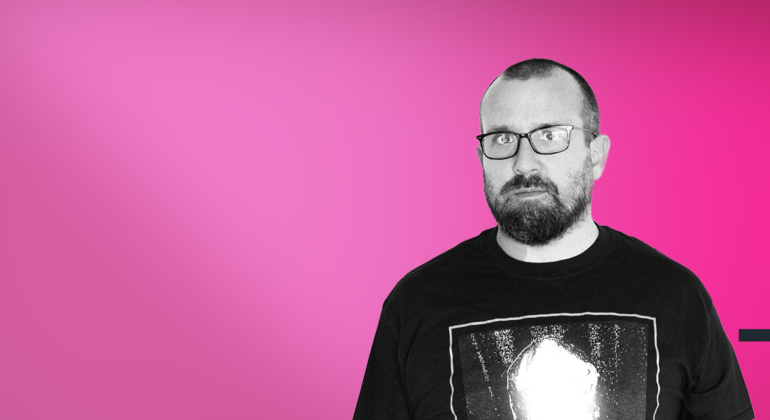Some time ago I was asked by a business blogger to provide my “five things to know” perspective on starting up and running a PR firm. How? Why? Is it worth it?
All good questions, and I do my best to answer them below. Running your own business is never the easy route, but it’s certainly rewarding – particularly when you have a stellar team, great clients and a solid business partner (lucky me!).
~ Amanda
Where did your interest and experience in PR begin?
I was a communications major in college, and elected to take a “Writing for PR” class as part of my course load. At the time, it was the only class offered on campus related to PR, and it armed me with just enough information to put PR on my “potential future career” radar.
After college I applied for myriad jobs within the communications field, from sales to marketing, PR, even an executive assistant at a creative agency – I just wanted to get my toe in. I landed an intern role in a corporate communications department, where I not only learned how to live off of credit cards thanks to an “intern stipend,” but was also exposed to a little bit of everything in the world of communications and PR floated to the top – after booking my first executive interview with a local news stations, I was hooked.
From there I applied to agencies left and right, and was fortunate to be hired on at Edelman’s Seattle office. One of my first roles was to help manage media around the Kingdome implosion, and following that I was on the account team who helped launch Experience Music Project. It was long hours, but very rewarding to be able to start a career working with high profile projects and media from the get go. Plus, according to Guinness, the Kingdome demolition marked the largest building, by volume, ever to be imploded, so I can truthfully say I worked on the most explosive PR campaign in history!
When you founded Kiterocket, what were some of the growing pains that came as a result of getting a new agency off the ground?
The biggest growing pain was getting the agency off the ground; we took a fly-by-the-seat-of-our-pants approach and started an agency with no money, no equipment, no name and no real plan in place. My business partner Rebecca Mosley and I were sitting at our corporate agency desks on a Thursday afternoon when an opportunity came up to take on a client of our own. We accepted on the spot, quit our jobs and founded our new agency the following Monday. I have always believed you should trust your instincts and seize the opportunity when it presents, and thankfully it worked.
The first year we ran off of sheer willpower (and strong coffee) to make the agency work. We funded ourselves off of savings and credit cards (a reoccurring theme!), operated lean, and learned to make due with modest resources. This included one ancient desktop computer and one ancient laptop with no Internet connection, so we would save files to a 3.5” hard disk and pass them back and forth for editing while one of us sat at a desk and the other set on a guest bed in a pieced together home office where we set up shop. I wish I was kidding.
So, getting our business off the ground and operating legally was a challenge. We came from the world of PR. We knew how to sell our PR services and do the client work. What we didn’t know was how to structure a company and the finances. My advice to others is hire an attorney or professional to do this for you; it will save you hours of headaches. Also hire an accountant from day one. There are so many things to learn once you’re not simply taking paychecks from an employer, but are in control of an entire company’s revenues, invoicing, tax reporting and countless other financial responsibilities. There are many tricks of the trade, and a good accountant familiar with small business operations is worth their weight in gold.
The structural hurdles are the hardest. Once you get past that, you run into the typical growing pains of hiring staff, finding office space, managing increasing client needs, etc. – but those are good pains to have, because you know you’re moving in the right direction.
From a client’s perspective, how do the services offered by a smaller boutique agency differ from those of a large, global company?
In terms of actual services it’s very similar – the big agencies and small agencies are all capable of doing the same tactics. What it comes down to for the client is who is on their account team and what access they have to senior counsel. This is where clients really see the difference.
A common complaint in the PR industry is the “bait and switch” that happens during new business pitches. This is when a seasoned senior team of specialists show up to win the business, and after papers are signed, clients are introduced to an entirely different account team that is much more junior, while senior staffers appear only occasionally at planning meetings or when it’s time to upsell.
This typically doesn’t happen at boutiques. I always say at Kiterocket it’s a WYSIWYG approach – what you see is what you get. There is no room in small agencies for smoke and mirrors, and there is no room for underperformers at any level. Senior counsel is with their clients every step of the way, and working directly with the full account team on a day-to-day basis.
It really comes down to respect for the dollar. As an owner of a small agency, I believe you have a greater appreciation for every single client dollar that comes in the door, and therefore a greater motivation to ensure the client sees ROI.
If you had to say that Kiterocket specialized in one thing, what would it be?
Customization. With so many online tools available to PR professionals, we have sadly seen a shift away from less personalized media and blogger relations, often to outright spam.
We don’t condone the spam approach at our office. Media and blogger lists are carefully curated and maintained. Before anyone sends an email or picks up the phone, journalists and contacts are thoroughly researched to ensure relevancy, and the pitch is tailored to the target and their audience. This is the bulls-eye approach versus the shrapnel approach, and while it may take longer, the results speak for themselves.
We have maintained blogs on behalf of clients, and as a result, have been on the receiving end of countless pitches from many other agencies, both big and small. The things we received were shocking. Lots of cutting and pasting, BCC: spam and misdirected pitches that had nothing whatsoever to do with the blog content. You quickly learn why media and bloggers often give PR a bad rap.
It is crucial for any PR agency to have a customized approach when it comes to outreach. While clients and agencies can get distracted by the next shiny social media tactic that reaches masses at the click of a button, the core of PR still relies in the distribution of meaningful messages through key influencers. In order to be the most effective, you need to put a lot of thought into your approach to each of them.
What type of PR work (media relations, online campaigns, etc.) do you find yourself most drawn to?
Personally, I love the realm of branded content. The Internet has opened the door for every single brand to be its own publisher and speak directly to their audience, but you have to do so in a meaningful and interesting way, otherwise you get lost in the shuffle.
You see a lot of lackluster pitches and seasonal press release sent around where you could swap out any competitor’s logo at the top and everything in the pitch still rings true. There is no differentiator. Creating branded content gives companies the ability to offer something no one else is or can, and also sets up a call to action – maybe it’s a downloadable guide, maybe it’s an app, or a creative contest – but companies need to create ownable content to really stand out, and need to ensure they are adequately leveraging it through a PR campaign.
As a PR team, you’re not always handed the latest new headline-making product to tout, but in the absence of that, you still need to create news day in and day out to keep your clients top of mind. This is where you get to dig down, be creative and breakthrough.


